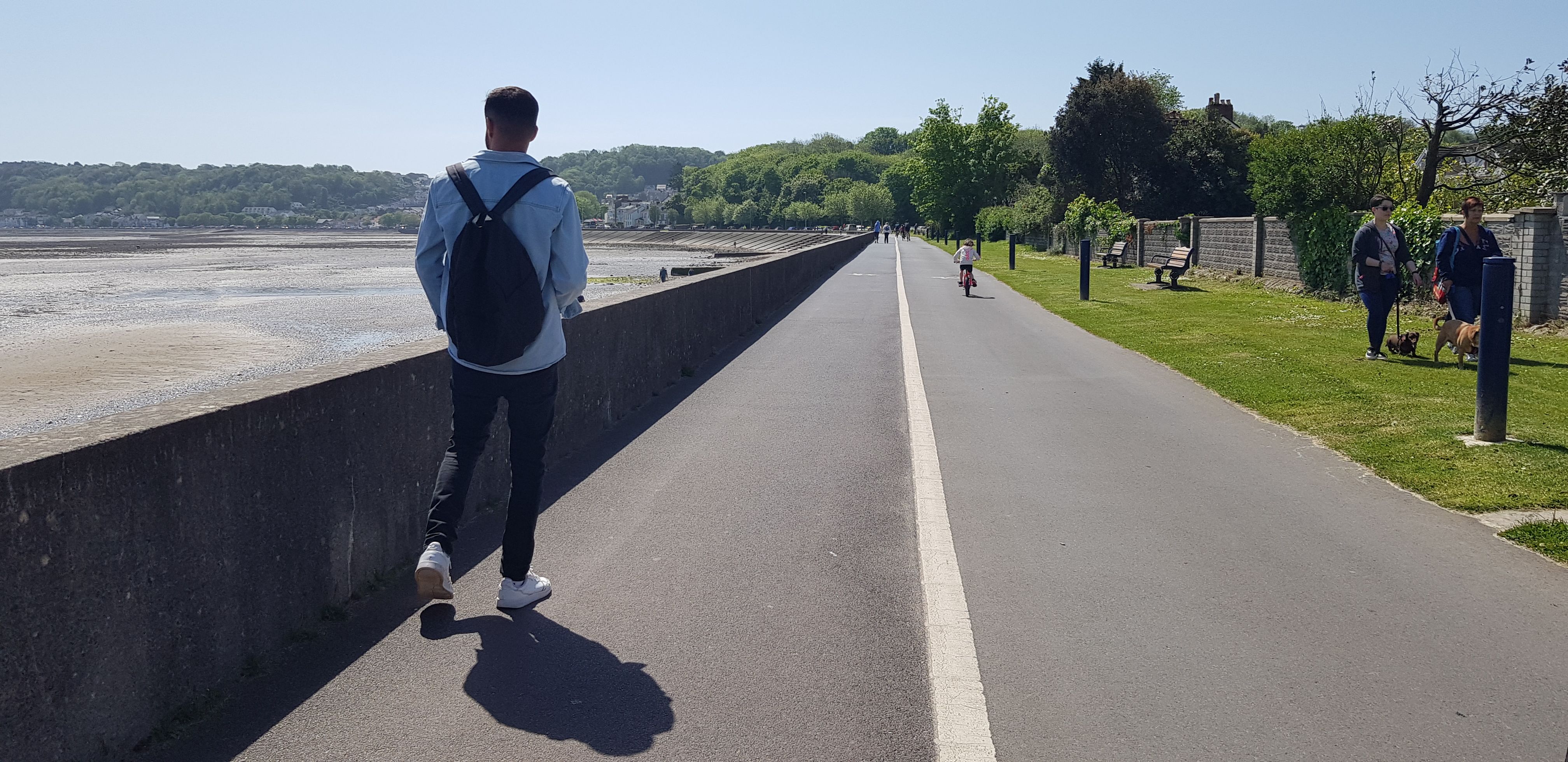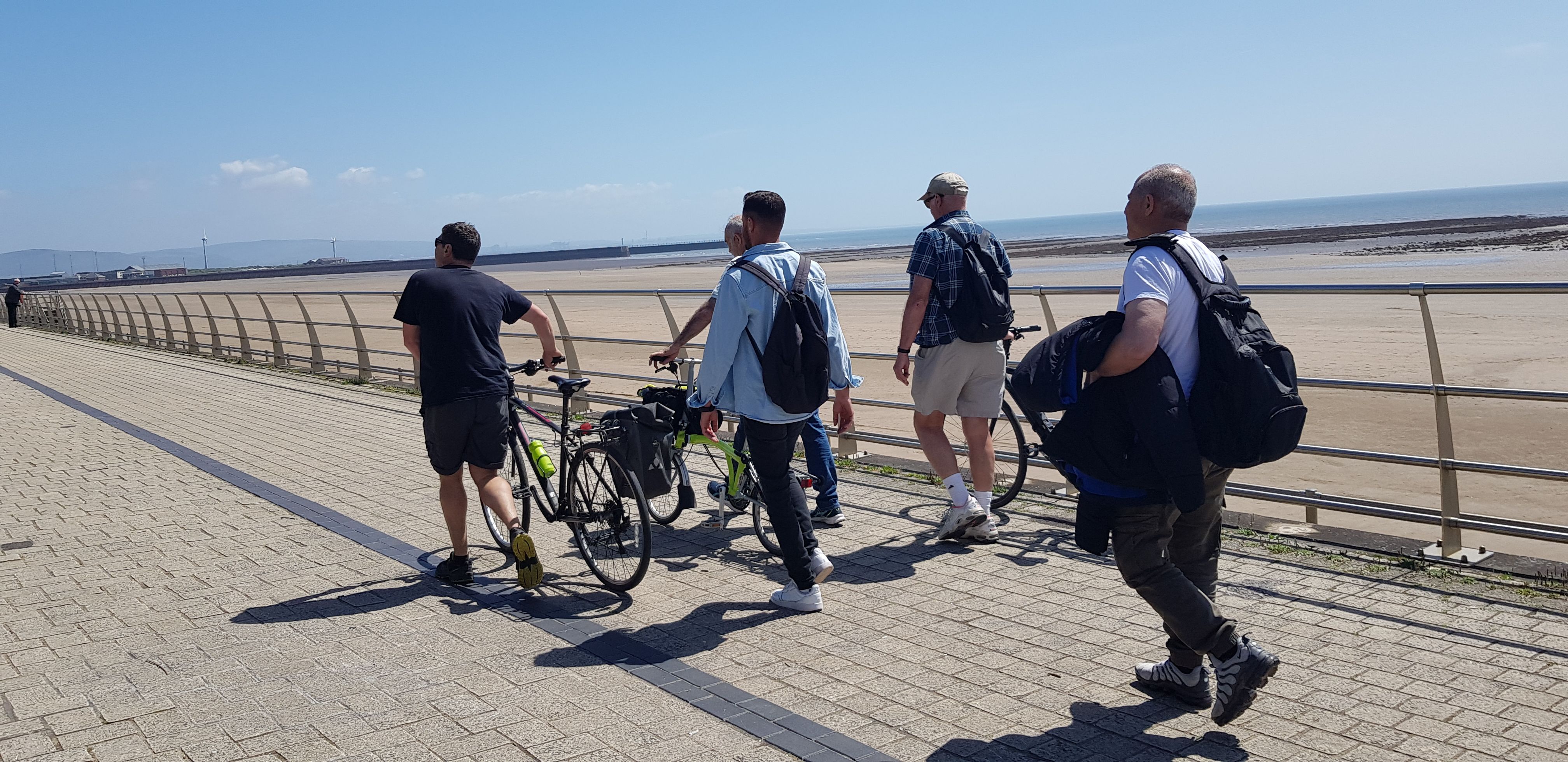The asylum seekers forced to move from place to place and ‘treated like prisoners’
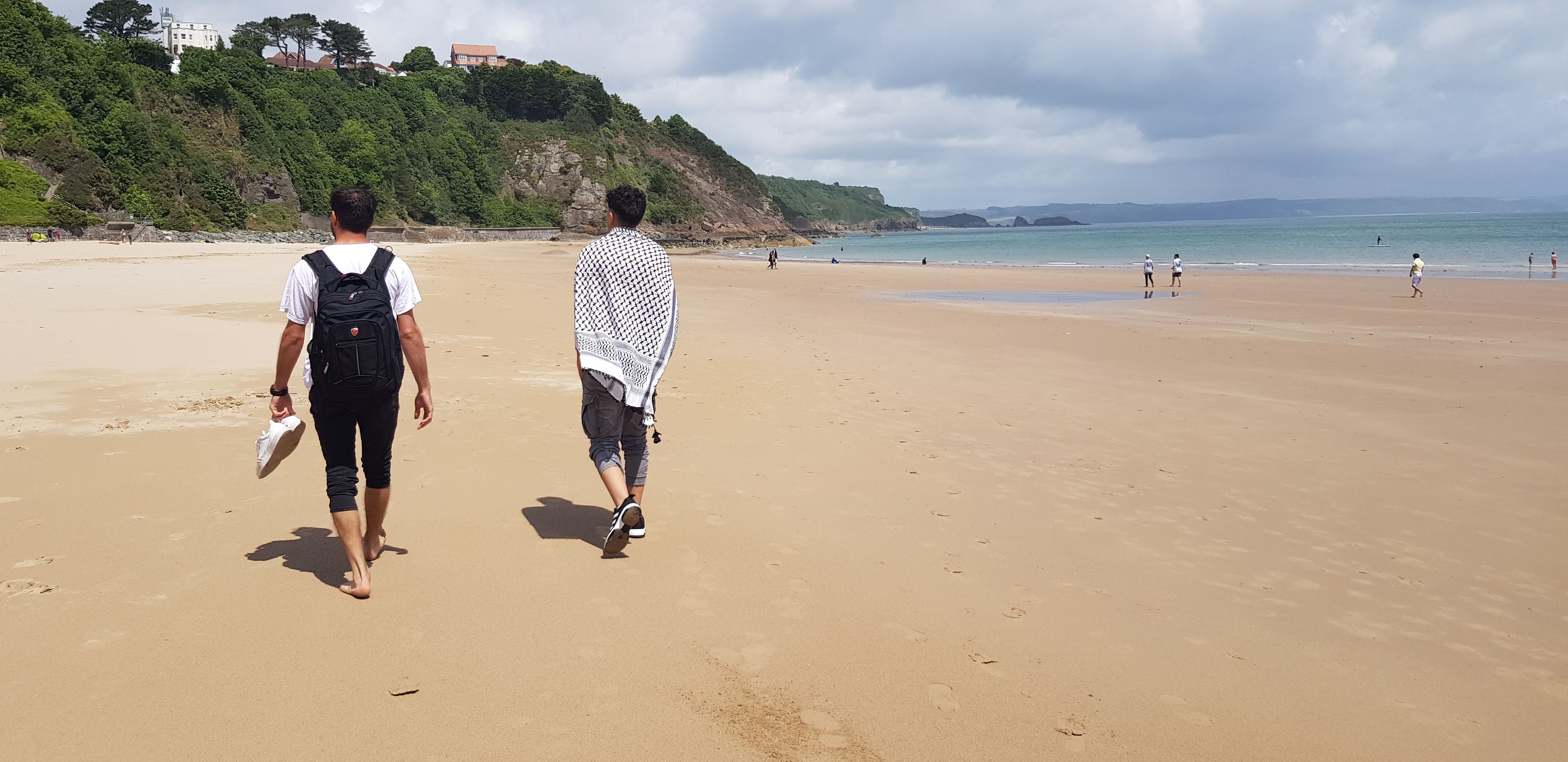
Asylum seekers in Wales have claimed they’re treated like ‘prisoners’ in living conditions that are fuelling mental health problems.
As the government’s controversial Rwanda plan faces legal challenges, asylum seekers have been speaking out about what it’s like under the Home Office’s current system.
Asylum seekers have told of their harrowing experiences, with one describing how she has to wash with bottles of cold water and another locked in a taxi and moved against her will.
Zaina Aljumma, who now has refugee status and is happy to be identified, sought asylum in June 2020 with her two young children after fleeing Syria.
She says after she put down roots in Cardiff, she was forced to move away from friends and support networks and the process left her feeling isolated and depressed.
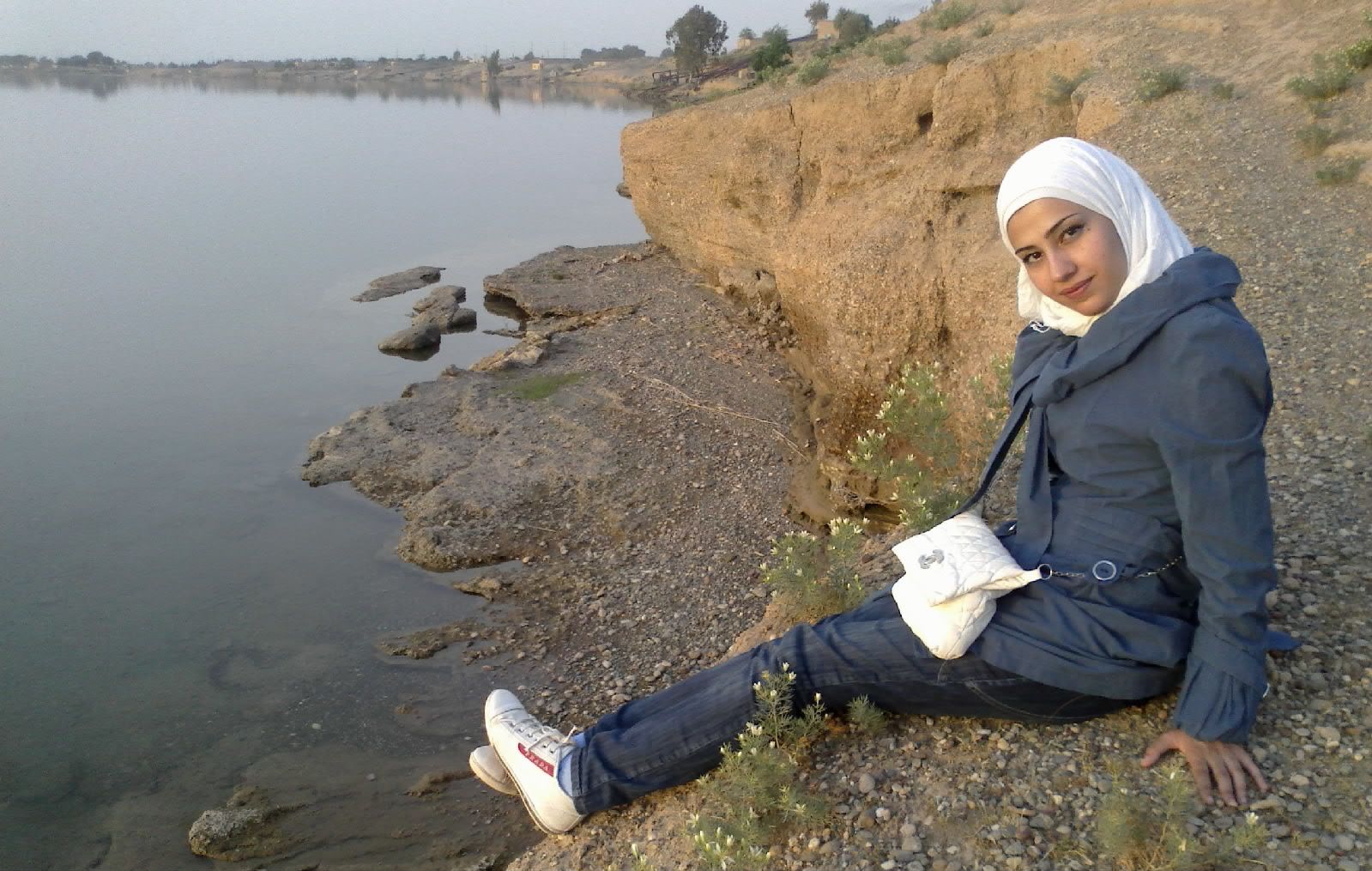
Zaina describes the asylum seeker process as 'traumatising'
Zaina describes the asylum seeker process as 'traumatising'
"We are all traumatised people, so why are you making our lives more difficult?"
Zaina and her two children were housed in shared accommodation in a dirty room that had been previously occupied by smokers.
Zaina said: “When I was an asylum seeker I was treated like a prisoner and had no choice in what I did or where I lived.”
A few weeks into living there, one of Zaina’s children began suffering with asthma and she was told the Home Office would finally find her a house.
Zaina said: “I received a phone call at eight o clock in the evening and the Home Office told me I would be moved to Wrexham the next day.


"I begged the driver to open the doors, but he just ignored me."
“My two children were happy in their school and were both upset that they couldn’t even say goodbye to their friends.
“I didn’t even know where Wrexham was until I was locked into a taxi and driven for hours. I begged the driver to open the doors, but he just ignored me. My children and I were terrified.”
In Wrexham, Zaina and her children were victims of hate crime and had to be supported by police and social workers. The house she and her family were given was littered with broken furniture, which she was told would take around seven months to replace.
Zaina became depressed shortly after the move to Wrexham and was afraid that if she did make any friends, they would be torn away from her again.
Zaina said: “During the day when my children were in school, I would sit in the park on my own. One day a passer-by stopped to chat and I realised it was the first time I’d spoken to someone in three months."
Zaina has since been granted refugee status and moved back to south Wales where she is a post graduate teaching student. She says the asylum seeker process made her lonely and had a serious impact on her mental health.
"I have depression, there is no shower in the house I was given so I wash myself with a bottle of water."
Ava, whose name has been changed to avoid the risk of damaging her asylum case, escaped persecution for her religion in Iran and arrived in the UK seven months ago. She was originally housed in Cardiff where she made friends and had access to beginner English lessons.
Four months into her new life in Cardiff, she was told by the Home Office she would be moved to Swansea. The property she currently shares with four other asylum seekers has no shower and Ava uses bottles of water to wash herself.
Ava said: “I was happy in Cardiff because there were more opportunities and I was even waiting to start a college course.
“When I was moved to Swansea, I lost my place at college and the English lessons here are for beginners only.
“I’m not happy anymore. Moving to Swansea has made me miserable and I spend most of the day alone with nothing to do.”
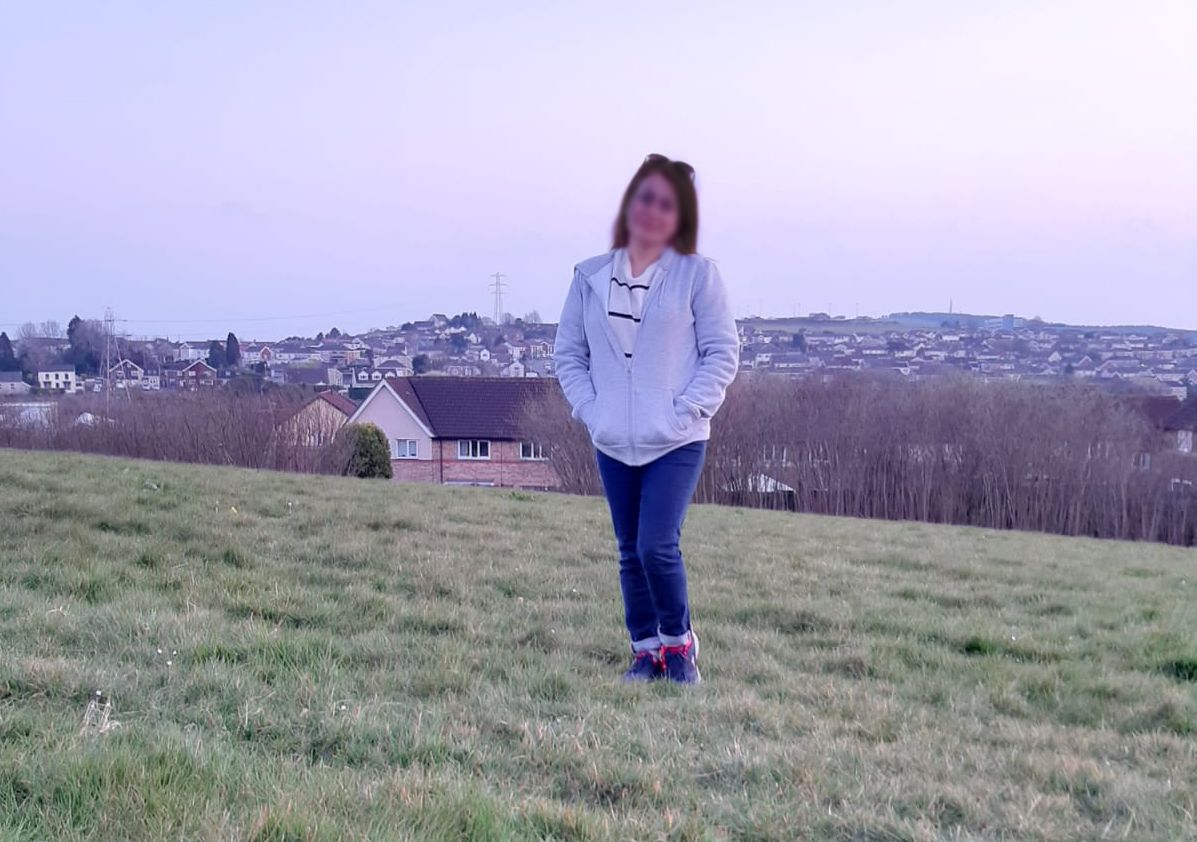
“My accommodation is too far from the city centre and I haven’t been able to find any volunteer opportunities or English lessons.”
Ahmad and Feraz (not their real names) are friends who travelled to the UK together from Idlib in Syria. They say they were desperate to be housed together in the same city so they could support each other through the asylum process.
The pair were together in a city in south east Wales for only one day before they were split up, with Ahmad sent to a city in England.
They can only afford to visit each other once a month. Ahmad says he feels ‘isolated and stressed’ without his friend to support him.
He said: “We chose a city in Wales because we had heard it was welcoming with very friendly people. I didn’t think the Home Office would split me and Feraz up.
“My accommodation is too far from the city centre and I haven’t been able to find any volunteer opportunities or English lessons.”
Feraz, has been able to volunteer in Wales for various organisations and says although he is happy, he is desperate to be reunited with Ahmad.
Feraz said: “I’ve been able to live a normal life in Wales but Ahmad should be here with me so we can support each other.
“He’s so stressed at his current accommodation because there are no activities for him. He’s on his own most of the time and he hasn’t been able to advance his English like I have.”
“If people must be moved, it should be done sensitively and carefully.”
Chief Executive of Cytûn, Reverend Aled Edwards OBE, has spent much of his life working with asylum seekers and refugees.
Mr Edwards says agencies face huge challenges and have to prioritise those in most need.
“When there are children involved, there are obvious advantages for them if they can build community links and support without being moved.” he said.
“If people must be moved, it should be done sensitively and carefully.”
Former asylum seeker Kenan Albe, who now advises others for charity Life Seekers Aid,
said: “Asylum seekers are vulnerable people who often can’t speak fluent English and some are sadly victims of human trafficking.
“There are now some asylum seekers who have been living in hotels for almost two years and are moved to other hotels too often. They can’t cook their own food and live their own lives.”
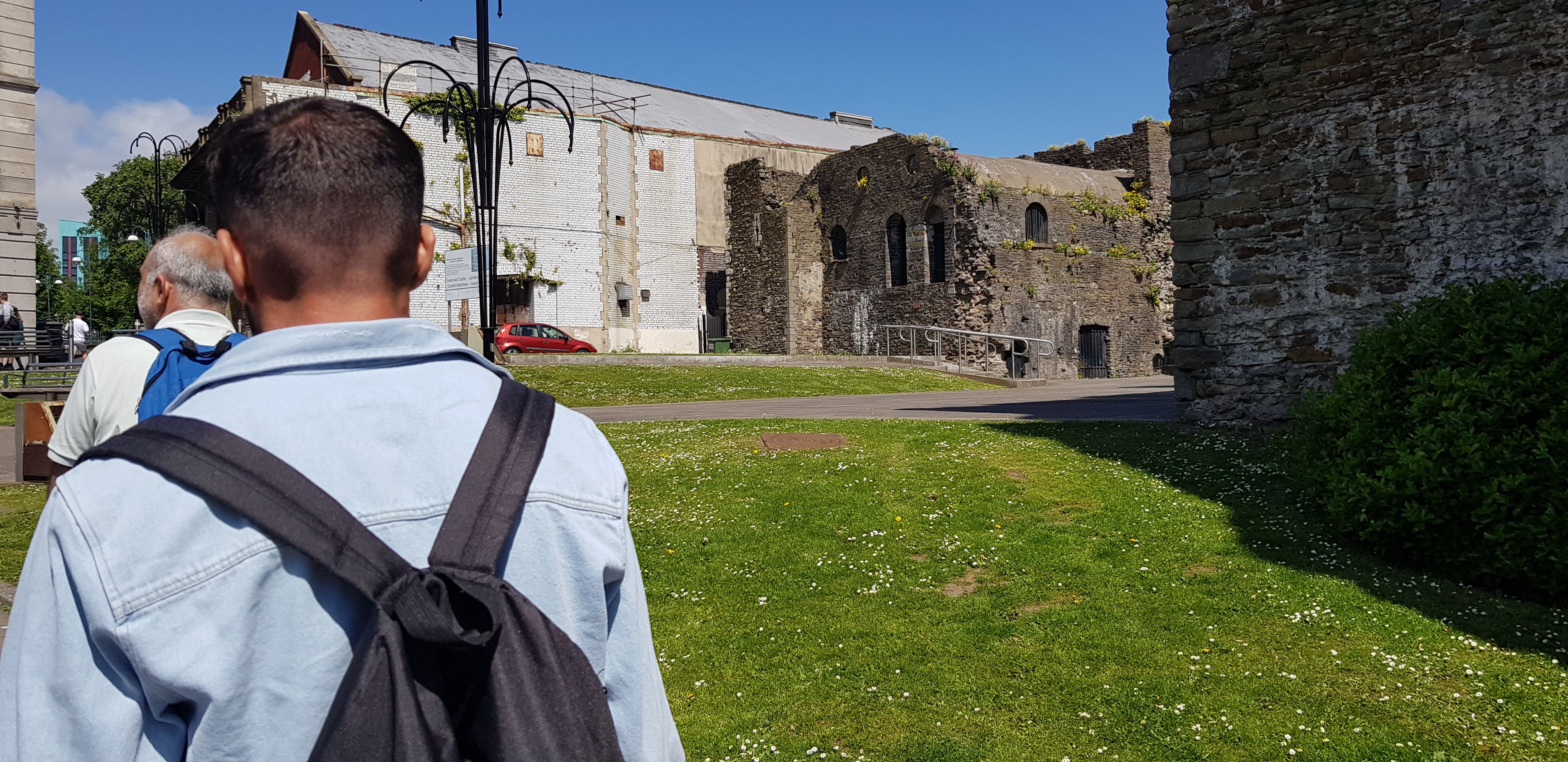
A Home Office spokesperson said: “Despite dealing with unprecedented pressures on the asylum system, we continue to provide safe, comfortable and secure accommodation for asylum seekers who would otherwise be destitute.
“Asylum accommodation is offered on a no-choice basis and we always aim to keep asylum seeker moves to a minimum. There are occasions however where such moves are necessary but, in such instances, asylum seekers are always given sufficient notice ahead of their move.”
A Welsh Government spokesperson said: “We firmly believe in the integration of asylum seekers from day one of their arrival in Wales.
“We have urged the UK Government to make improvements to the operation of their asylum system for many years but these examples show there is still significant room for improvement.
“We advocated for the Home Office to include better safeguards against unnecessary movement of asylum seekers in their Asylum Accommodation and Support Contract (AASC) when it was let in 2019 but they did not adopt our recommendations.
“We would urge any asylum seekers in Wales who are unhappy with their accommodation or access to services to contact the Welsh Government-funded Sanctuary Seeker Support Service on 08081967273 for advice and advocacy support.”
